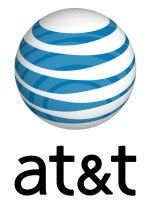 Members of the House of Representatives push AT&T chairman for answers on proposed $39 billion buy-out of T-Mobile.
Members of the House of Representatives push AT&T chairman for answers on proposed $39 billion buy-out of T-Mobile.
The deal, which would see AT&T become the largest carrier in the United States, has been criticized from all angles because it further reduces the number of wireless carriers. Critics also say that T-Mobile's discount prices in comparison to others might be lost in the merger.
Chairman of AT&T, Randall Stephenson, told the U.S. House of Representatives' subcommittee on intellectual property, competition and the Internet, that the deal is a path to extending the company's reach into rural areas, and other underserved areas in the U.S.
"It's about achieving this with private capital," he said. "We continue to invest at a very aggressive pace."
If the deal were to go ahead, it would mean that 80 percent of U.S. wireless contract customers would be served by just two providers. To go ahead, it needs the approval of the U.S. Department of Justice (DoJ) and the Federal Communications Commission (FCC). The panel pressing Stephenson for details has no say either way.
The reception to the deal by the panel was very skeptical of the proposed benefits to it. "There are legitimate questions about whether this merger could move this market past the anti-competitive tipping point," said Representative Bob Goodlatte, a Virginia Republican.
Representative Darrell Issa, a California Republican, also expressed concerns that AT&T would have the power to price backhaul in a way that would cut out smaller carriers. "How am I going to be comfortable that all of these smaller carriers that remain ... how can they be assured that they'll get fair value when buying backhaul?," he asked.
However, Representative Ben Quayle, an Arizona Republican, argued that prices have not gone up as the market consolidated and that any attempt to raise prices would likely give new companies an incentive to enter the market.
Chairman of AT&T, Randall Stephenson, told the U.S. House of Representatives' subcommittee on intellectual property, competition and the Internet, that the deal is a path to extending the company's reach into rural areas, and other underserved areas in the U.S.
"It's about achieving this with private capital," he said. "We continue to invest at a very aggressive pace."
If the deal were to go ahead, it would mean that 80 percent of U.S. wireless contract customers would be served by just two providers. To go ahead, it needs the approval of the U.S. Department of Justice (DoJ) and the Federal Communications Commission (FCC). The panel pressing Stephenson for details has no say either way.
The reception to the deal by the panel was very skeptical of the proposed benefits to it. "There are legitimate questions about whether this merger could move this market past the anti-competitive tipping point," said Representative Bob Goodlatte, a Virginia Republican.
Representative Darrell Issa, a California Republican, also expressed concerns that AT&T would have the power to price backhaul in a way that would cut out smaller carriers. "How am I going to be comfortable that all of these smaller carriers that remain ... how can they be assured that they'll get fair value when buying backhaul?," he asked.
However, Representative Ben Quayle, an Arizona Republican, argued that prices have not gone up as the market consolidated and that any attempt to raise prices would likely give new companies an incentive to enter the market.











